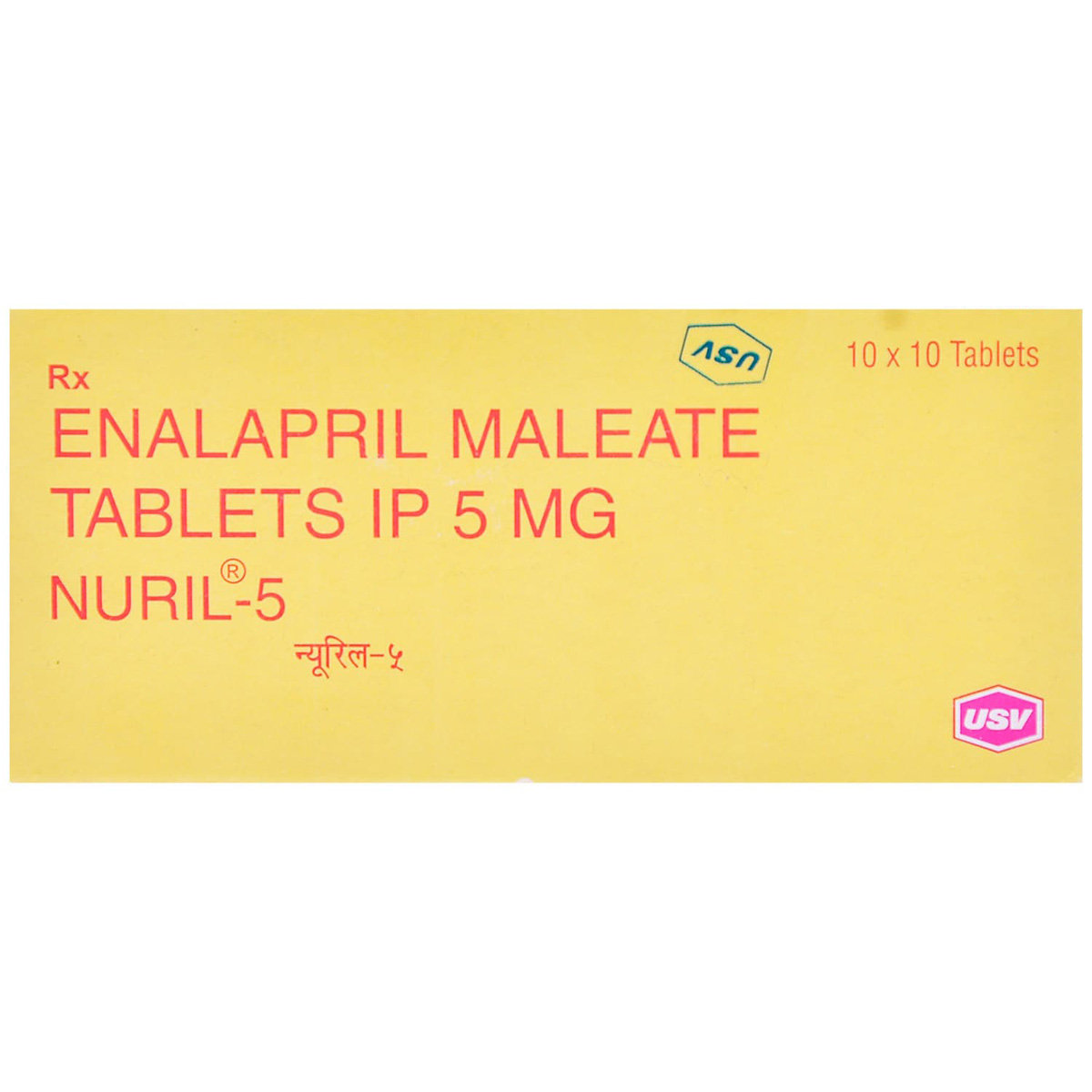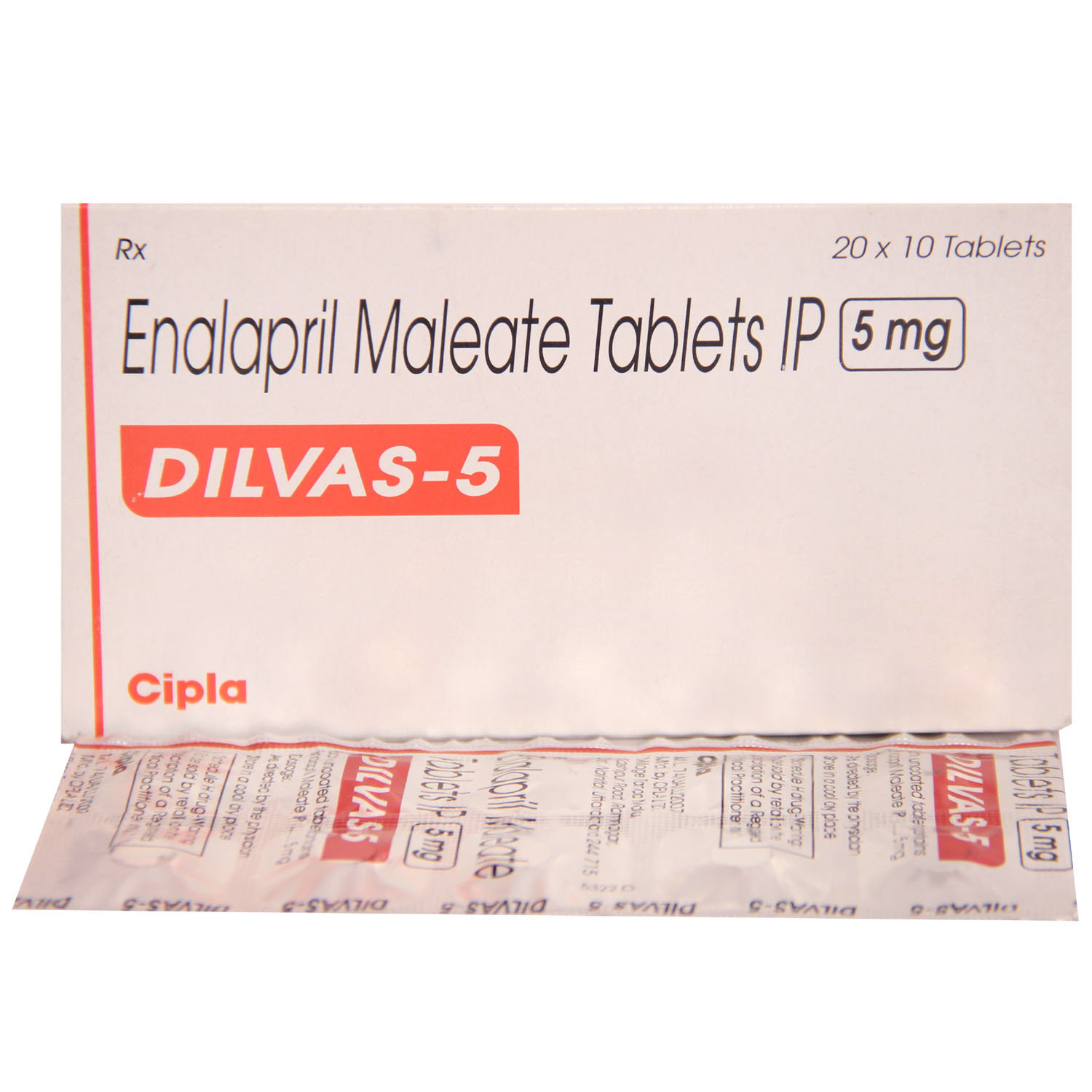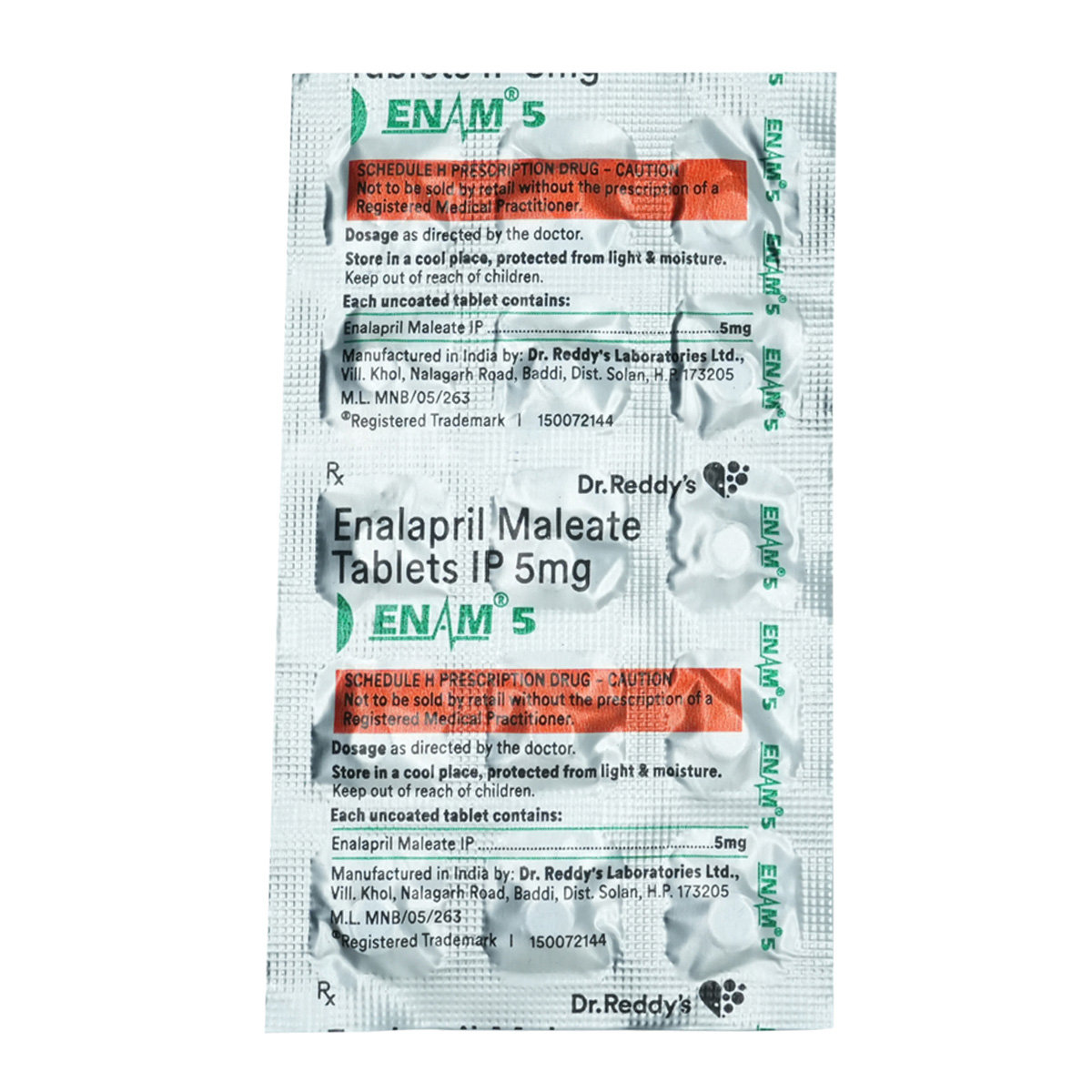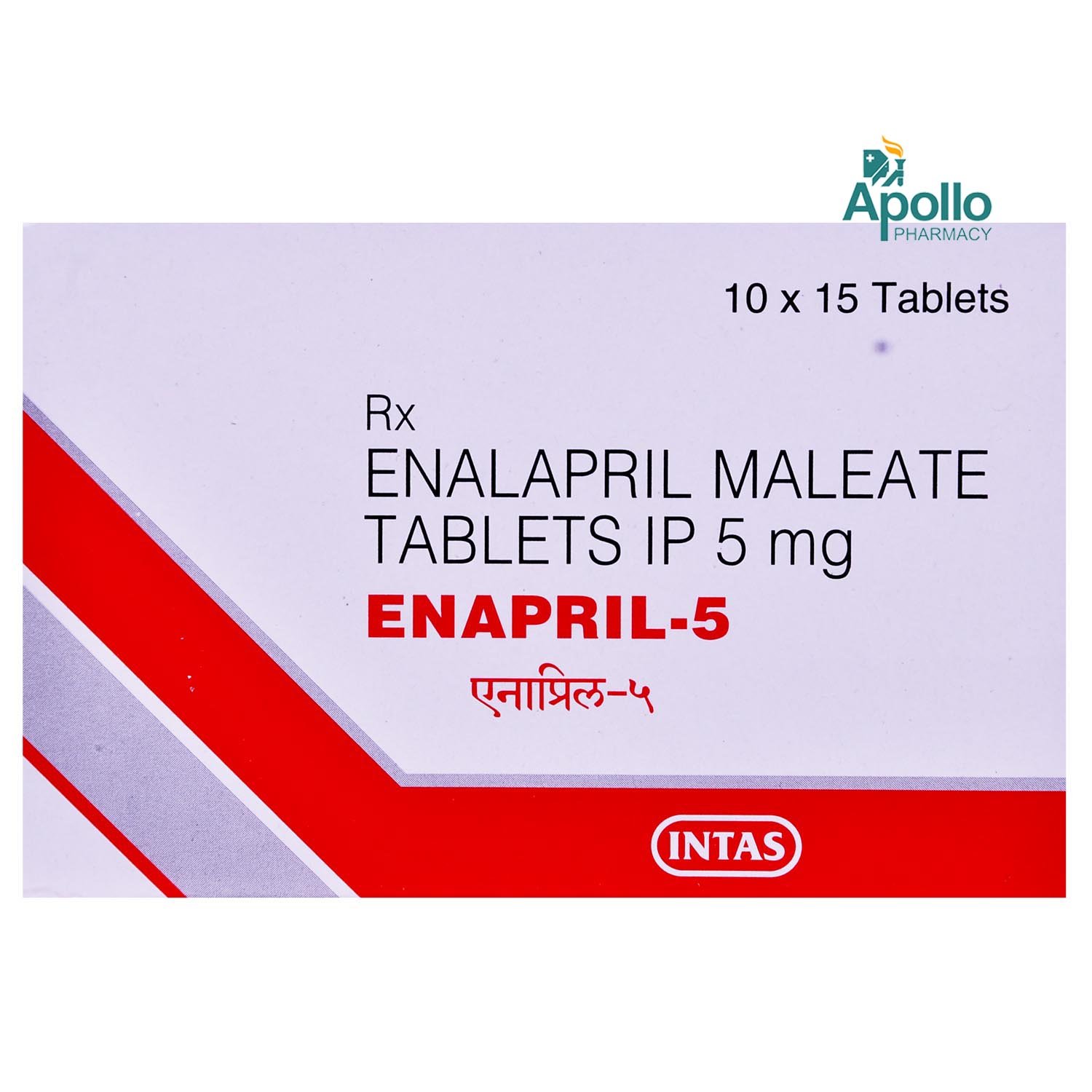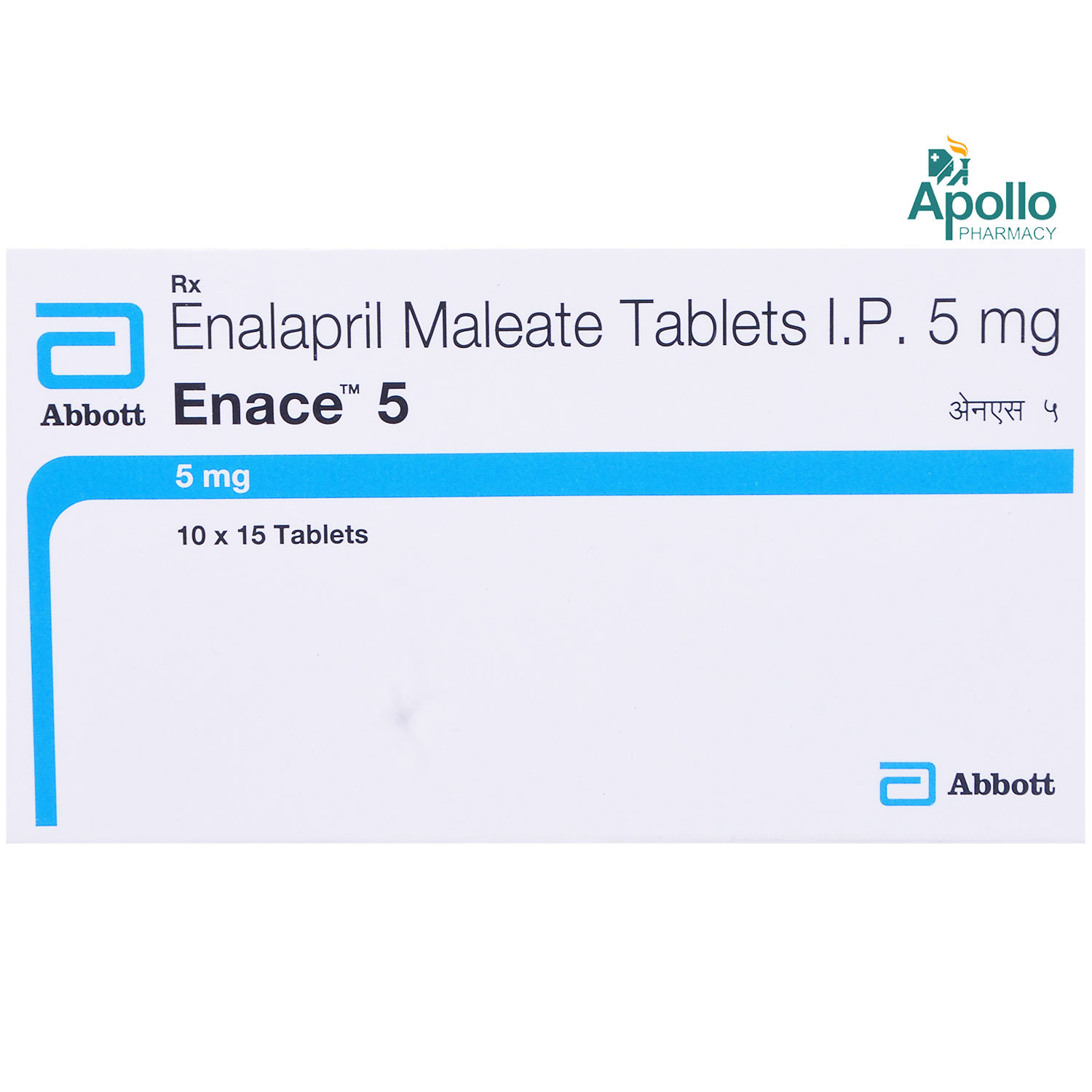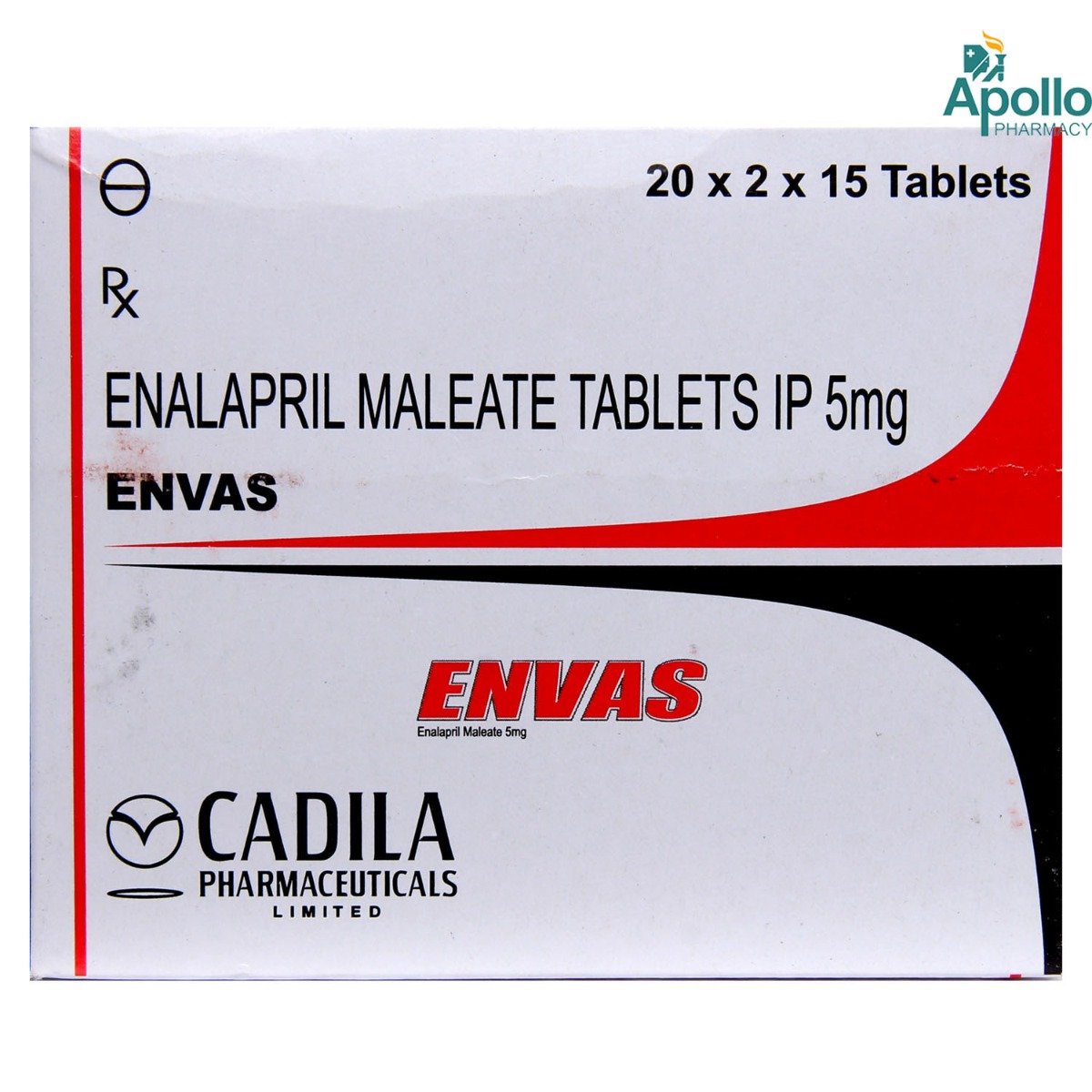ENCARDIL 5MG TABLET
MRP ₹220
(Inclusive of all Taxes)
₹33.0 Cashback (15%)
Provide Delivery Location
Online payment accepted
 Prescription drug
Prescription drugWhats That
Composition :
Manufacturer/Marketer :
Consume Type :
Expires on or after :
Return Policy :
NPPA :
About ENCARDIL 5MG TABLET
ENCARDIL 5MG TABLET is prescribed alone or in combination with other drugs. ENCARDIL 5MG TABLET belongs to angiotensin-converting enzyme (ACE) inhibitors, primarily used to treat high blood pressure and heart failure. ENCARDIL 5MG TABLET is an angiotensin-converting enzyme (ACE) inhibitor which lower increased blood pressure by blocking a naturally occurring substance known as angiotensin II (that tightens your blood vessels). ENCARDIL 5MG TABLET allows these constricted blood vessels to relax and therefore help lower high blood pressure. However, ENCARDIL 5MG TABLET does not cure high blood pressure (hypertension) but does help control it. In addition to this, ENCARDIL 5MG TABLET also reduces the physical effects of anxiety. Hypertension (High blood pressure) is a condition in which the force exerted by the blood against the artery walls becomes so high that it causes health problems, such as heart disease.
You can take ENCARDIL 5MG TABLET with a meal or after/before a meal. Your doctor will advise you on the exact dosage and how often you have to take ENCARDIL 5MG TABLET based on your medical condition. In some cases, you may experience headaches, ankle swelling, slow heart rate, and nausea. ENCARDIL 5MG TABLET may lower your blood pressure especially if taken with alcohol. So, avoid driving and operating heavy machinery. Most of these side effects of ENCARDIL 5MG TABLET do not require medical attention and gradually resolve over time. However, if the side effects are persistent, reach out to your doctor.
Try not to stop taking this medicine of your own. Even if your blood pressure becomes routine, you should not stop using ENCARDIL 5MG TABLET. Doing so may worsen your condition. Let your doctor know if you have had or currently have any liver, kidney, or heart problems. During pregnancy and lactation, ENCARDIL 5MG TABLET should be only taken after consulting your doctor. You should regularly monitor your blood pressure and heart rate.
Uses of ENCARDIL 5MG TABLET
Directions for Use
Key Benefits
ENCARDIL 5MG TABLET is primarily used to treat hypertension or high blood pressure. In combination therapy, it is also prescribed with other drugs, like thiazide diuretics (water pills). Besides, ENCARDIL 5MG TABLET prevents congestive heart failure in combination with diuretics (water pills) and cardiac glycosides like digitalis. In these patients, ENCARDIL 5MG TABLET improves heart complications, increases survival, and reduces hospitalization frequency.
Storage
- If you experience low blood pressure symptoms like dizziness, lightheadedness, or fainting while taking medication, seek immediate medical attention.
- Make lifestyle modifications and adjust your medication regimen under medical guidance to manage low blood pressure.
- As your doctor advises, regularly check your blood pressure at home. Record your readings to detect any changes and share them with your doctor.
- Fluid intake plays a vital role in managing blood pressure by maintaining blood volume, regulating blood pressure, and supporting blood vessel function. Drinking enough fluids helps prevent dehydration, maintain electrolyte balance, and regulate fluid balance.
- Take regular breaks to sit or lie down if you need to stand for long periods.
- When lying down, elevate your head with extra pillows to help improve blood flow.
- Avoid heavy exercise or strenuous activities that can worsen low blood pressure.
- Wear compression socks as your doctor advises to enhance blood flow, reduce oedema, and control blood pressure.
- If symptoms persist or worsen, or if you have concerns about your condition, seek medical attention for personalized guidance and care.
- Reduce salt intake to minimize fluid buildup.
- Use compression stockings, sleeves, or gloves.
- Gently massage the affected area towards the heart.
- Protect the swollen area from injury and keep it clean.
- Use lotion or cream to keep the skin moisturized.
Drug Warnings
ENCARDIL 5MG TABLET should not be given to the people allergic to ENCARDIL 5MG TABLET, have low blood pressure (less than 90 mm of Hg), have had a heart attack, kidney disease, liver disease, pregnant women or planning to get pregnant and breastfeeding women. Besides this, tell your doctor if you have low blood pressure (hypotension), heart disease, liver disease, kidney disease, or are currently on dialysis. ENCARDIL 5MG TABLET is not recommended in neonates and children with worse kidney functioning (glomerular filtration rate <30 mL/min). The level of raised bilirubin has been reported in some cases, so patients with liver diseases (like cirrhosis, jaundice, yellowing of skin/eye etc.) should take the ENCARDIL 5MG TABLET with caution. Do not take ENCARDIL 5MG TABLET with alcohol as it may cause low blood pressure (hypotension) with symptoms of dizziness, drowsiness, weariness, or sleepiness. Tell your doctor that, you are using ENCARDIL 5MG TABLET before undergoing any dental or other surgery. Your doctor might stop this medicine before the surgery.
Drug-Drug Interactions
Drug-Drug Interactions
Login/Sign Up
Using aliskiren together with Encardil 5mg Tablet may increase the risk of serious side effects such as kidney problems, low blood pressure, and high potassium levels in the blood.
How to manage the interaction:
Taking Encardil 5mg Tablet with aliskiren is not recommended, but it can be taken together if your doctor advises. However, contact your doctor if you experience nausea, vomiting, weakness, confusion, tingling of the hands and feet, or feelings of heaviness in the legs. Do not stop taking any medications without consulting a doctor.
Taking potassium citrate with Encardil 5mg Tablet may increase potassium levels in the blood, leading to kidney problems, muscle paralysis, and abnormal heart rhythm.
How to manage the interaction:
Co-administration of Encardil 5mg Tablet with Potassium citrate can result in an interaction, but it can be taken if your doctor has advised it. However, consult the doctor if you experience nausea, vomiting, weakness, confusion, tingling of the hands and feet, and feelings of heaviness in the legs. Do not discontinue any medications without a doctor's advice.
Encardil 5mg Tablet combined with Trimethoprim can cause hyperkalemia by elevating blood potassium levels. In severe cases, hyperkalemia can induce muscle paralysis, renal damage, and cardiac problems. The risk is increased if you are elderly, dehydrated, or have a history of renal or cardiovascular disease.
How to manage the interaction:
Although taking Encardil 5mg Tablet together with Trimethoprim may possibly result in an interaction, they can be taken together if prescribed by your doctor. However, contact your doctor immediately if you experience signs and symptoms of hyperkalemia, such as nausea, vomiting, confusion, numbness, tingling in hands and feet, and irregular heartbeat. It is advised to limit the intake of potassium-rich foods like tomatoes, bananas, mangoes, beans, and potassium-containing supplements. Do not discontinue any medication without consulting your doctor.
When mipomersen is used with other drugs that can potentially damage the liver, like Encardil 5mg Tablet, the risk of liver issues increases.
How to manage the interaction:
Although taking Encardil 5mg Tablet and Mipomersen together can cause an interaction, it can be taken if your doctor has suggested it. If you have any of these symptoms - joint pain, swelling, skin rash, itching, fatigue, abdominal pain, or dark urine - immediately contact your doctor. Do not stop using any medications without a doctor's advice.
Due to additive or synergistic effects, coadministration of Encardil 5mg Tablet with candesartan may raise the risk of hyperkalemia, hypotension, syncope, and renal failure. The risk is increased if you are elderly, dehydrated, or have a history of kidney or heart disease.
How to manage the interaction:
Although taking Encardil 5mg Tablet together with Candesartan may result in an interaction, they can be taken together if prescribed by your doctor. However, contact your doctor immediately if you experience signs and symptoms of hyperkalemia, such as nausea, vomiting, confusion, numbness, tingling in hands and feet, and irregular heartbeat. It is advised to limit the intake of potassium-rich foods like tomatoes, bananas, mangoes, beans and potassium-containing supplements. Do not discontinue any medication without consulting your doctor.
Taking Encardil 5mg Tablet with Potassium citrate increases the potassium levels in the blood, which may lead to hyperkalemia. In severe cases, hyperkalemia may lead to muscular paralysis, kidney damage, and cardiac problems. The risk is increased if you are elderly, dehydrated, or have a history of kidney or heart disease.
How to manage the interaction:
Although taking Encardil 5mg Tablet together with Potassium citrate may possibly result in an interaction, they can be taken together if prescribed by your doctor. However, contact your doctor immediately if you experience signs and symptoms of hyperkalemia, such as nausea, vomiting, confusion, numbness, tingling in hands and feet, and irregular heartbeat. It is advised to limit the intake of potassium-rich foods like tomatoes, bananas, mangoes, beans, and potassium-containing supplements. Do not discontinue any medication without consulting your doctor.
Encardil 5mg Tablet, when taken together with Tizanidine, may lead to hypotension (low blood pressure) due to the additive effect.
How to manage the interaction:
Although taking Encardil 5mg Tablet together with Tizanidine may possibly result in an interaction, they can be taken together if prescribed by your doctor. However, contact your doctor immediately if you experience signs and symptoms of hypotension, such as headache, dizziness, drowsiness, fainting, or irregular heartbeat. It is advised not to drive or operate any machinery that requires alertness and to be cautious when getting up from a sitting or lying position. Do not discontinue any medication without consulting your doctor.
Due to the additive effect, the coadministration of Encardil 5mg Tablet and Amiloride (potassium-sparing diuretic) may increase blood potassium levels. The risk is increased if you are elderly, dehydrated, or have a history of kidney or heart disease.
How to manage the interaction:
Although taking Encardil 5mg Tablet together with Allopurinol may possibly result in an interaction, they can be taken together if prescribed by your doctor. However, if you experience any signs and symptoms of hyperkalemia like, weakness, confusion, numbness or tingling, and uneven heartbeats, consult your doctor immediately. Do not discontinue any medication without consulting your doctor.
Combining Encardil 5mg Tablet and Potassium acetate may result in significantly higher blood potassium levels. High potassium levels can cause hyperkalemia, which can lead to kidney failure, muscle paralysis, abnormal heart rhythm
How to manage the interaction:
Although taking Encardil 5mg Tablet and Potassium acetate together can possibly result in an interaction, they can be taken together if prescribed by a doctor. However, contact a doctor if you experience nausea, vomiting, weakness, tingling in your hands and feet, and feelings of heaviness in your legs. Do not stop using any medications without a doctor's advice.
Coadministration of Encardil 5mg Tablet with Spironolactone may increase the risk of hyperkalemia (high potassium levels in the blood), hypotension, syncope (fainting), and renal failure due to additive or synergistic effects. If you are elderly, dehydrated, or have a history of renal or heart illness, your risk is enhanced.
How to manage the interaction:
Although taking Encardil 5mg Tablet together with Spironolactone may possibly result in an interaction, they can be taken together if prescribed by your doctor. However, contact your doctor immediately if you experience signs and symptoms of hyperkalemia, such as nausea, vomiting, confusion, numbness, tingling in hands and feet, and irregular heartbeat. It is advised to limit the intake of potassium-rich foods like tomatoes, bananas, coconut water, mangoes, beans, and potassium-containing supplements. Do not discontinue any medication without consulting your doctor.
Drug-Food Interactions
Drug-Food Interactions
Login/Sign Up
Lentils, Orange Juice, Oranges, Raisins, Potatoes, Salmon Dried, Spinach, Sweet Potatoes, Tomatoes, Coconut Water, Beans, Beetroot, Broccoli, Bananas, Apricots, Avocado, Yogurt
How to manage the interaction:
Consuming a high-potassium diet while taking Encardil 5mg Tablet can cause hyperkalemia (elevated blood potassium levels). Hyperkalemia may lead to dizziness, lightheadedness, fainting, or a rapid heartbeat. Avoid the consumption of potassium-rich foods.
Diet & Lifestyle Advise
- Keep your weight under control with a body mass index (BMI) of 19.5-24.9.
- Do regular physical activity or exercise for at least 150 minutes per week, or about 30 minutes most days of the week. Doing this can help lower your raised blood pressure by about 5 mm of Hg.
- Opt for a diet rich in whole grains, fruits, veggies and low-fat dairy products.
- Limit sodium chloride (table salt) intake in your daily diet to 2300 mg per day or less than 1500 mg is ideal for most adults.
- If you are taking alcohol, then only one serving for women and two servings for men is advisable.
- Quitting smoking is the best strategy to lower the risk of heart disease.
- Avoid chronic stress as it can raise your blood pressure. Try to enjoy and spend time with your loved ones to cope with stress and practice mindfulness techniques.
- Monitor your blood pressure daily and if there is too much fluctuation, immediately contact your doctor.
- Including heart-healthy omega-3 fatty acid-containing food drinks in your daily diet. You can also use low-fat cooking oil like olive oil, soybean oil, canola oil, and coconut oil to help lower your elevated blood pressure.
Side Effects of ENCARDIL 5MG TABLET
- Cough
- Dizziness
- Vision blurred
- Weakness
- Nausea (feeling sick)
Habit Forming
Therapeutic Class
All Substitutes & Brand Comparisons
RX
Out of StockBql 5mg Tablet
Zydus Cadila
₹17.54
(₹1.58 per unit)
92% CHEAPERRX
Out of StockDR Vas 5mg Tablet
₹20
(₹1.8 per unit)
90% CHEAPERRX
Out of StockEcard 5mg Tablet
₹21
(₹1.89 per unit)
90% CHEAPER
Drug-Diseases Interactions
Drug-Diseases Interactions
Login/Sign Up
FAQs
Drug-Drug Interactions Checker List
- ALISKIREN
- INSULIN
- LITHIUM
Special Advise
- If hypotension occurs, the patient should be placed in the supine position and if necessary, should receive an intravenous infusion of normal saline.
Disease/Condition Glossary
Blood pressure: Blood pressure is the measurement of the force that our heart uses to pump blood to all parts of the body. Hypertension is a chronic condition when blood pressure is too high. This condition can lead to hardened arteries (blood vessels), decreasing the blood and oxygen flow to the heart. High blood pressure (hypertension) can cause chest pain (angina) and heart attack (when blood supply to the heart is blocked), brain damage (stroke) and kidney failure. High blood pressure can be diagnosed with the help of a blood pressure monitor or sphygmomanometer. Systolic pressure is the pressure when the heart pumps blood out. On the other hand, diastolic pressure is the pressure when your heart is at the resting stage between heartbeats. If your blood pressure is 140/90 mm of Hg, it means the systolic pressure is 140 mm of Hg and, diastolic pressure is 90 mm of Hg. Ideal blood pressure should be between 90/60 mm of Hg and 120/80 mm of Hg.

Have a query?
Alcohol
Safe if prescribed
ENCARDIL 5MG TABLET may enhance the hypotensive (low blood pressure) effect of this drug. For better advise, you should consult your doctor whether you can take ENCARDIL 5MG TABLET with alcohol.
Pregnancy
Consult your doctor
The use of ENCARDIL 5MG TABLET or any ACE inhibitors is usually contraindicated during the second and third trimester of pregnancy. It may cause harm to the developing fetus. Hence, you should always consult your doctor before using ENCARDIL 5MG TABLET.
Breast Feeding
Consult your doctor
Use of ENCARDIL 5MG TABLET is not recommended during breastfeeding stage.
Driving
Safe if prescribed
Drive with caution, ENCARDIL 5MG TABLET may cause blurry vision, and dizziness or weariness may occur.
Liver
Consult your doctor
Rare elevation in the liver enzymes (like bilirubin) have been observed while taking ENCARDIL 5MG TABLET, so it has to be taken with caution. Especially if you have a history of liver diseases/conditions. Dose may have to be adjusted by your doctor.
Kidney
Consult your doctor
ENCARDIL 5MG TABLET to be taken with caution, especially in case of severe kidney disease. Dose may have to be adjusted by your doctor. ENCARDIL 5MG TABLET should be given with precaution in hemodialysis condtion.
Children
Safe if prescribed
ENCARDIL 5MG TABLET is not recommended for children. The safety and effectivenss of ENCARDIL 5MG TABLET has not been established in children due to limited testing of this drug on children by competent authorities across the world. If necessary, your doctor will decide whether to give ENCARDIL 5MG TABLET or not.






